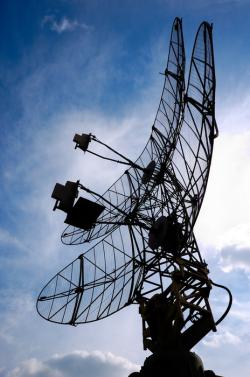ET4175 Radar II: Theory and system Design
Radar systems play an important role in today's world. Aviation could not exist without them. But also shipping, traffic, and remote sensing extensively employ radar. In today's systems, signal processing is the central theme that enables all radar applications. However, a thorough understanding of the physical and electrical engineering radar principles is essential to the successful radar engineer.
The course ET4175 "Radar II: Theory and System Design" provides an introduction to the design and operation of modern radar systems. Topics include radar principles and designs, the interaction of radar with the environment, i.e. clutter and detection of targets, subsequent signal processing, and signal to noise topics. Furthermore, waveform design driven by the range and Doppler measurements, suppression of ambiguities is treated. Finally, modern developments in active arrays and digital beamforming are discussed.
The aim of this course is to advance students' knowledge in microwave radar systems. The course will build on the introductory course ET4169 "Radar I: From Basic Principles to Applications". The participants will gain sufficient knowledge to understand the design, operation, and signal processing of modern radar systems and architectures, taking into account radar clutter and detection theory.
Teachers
dr.ir. Hans Driessen (MS3)
Radar signal/data processing; radar management
Last modified: 2023-11-02

Details
| Credits: | 4 EC |
|---|---|
| Period: | 4/0/0/0 |
| Contact: | Hans Driessen |